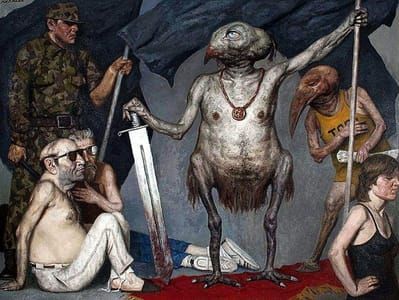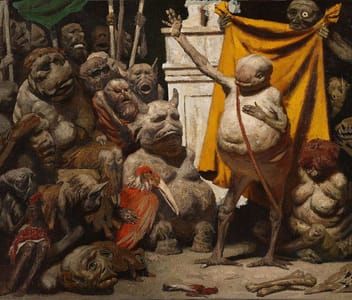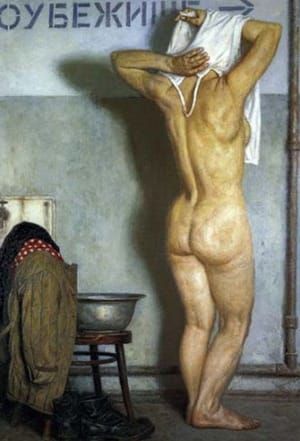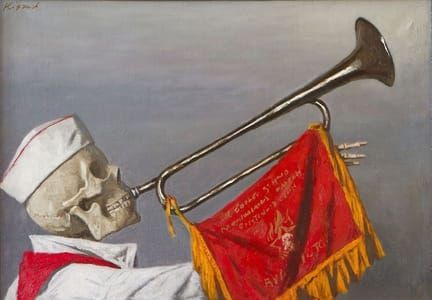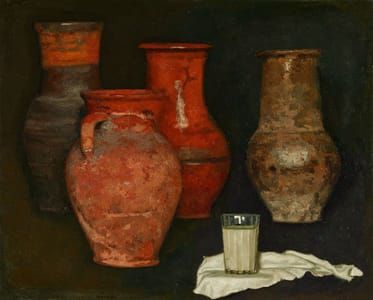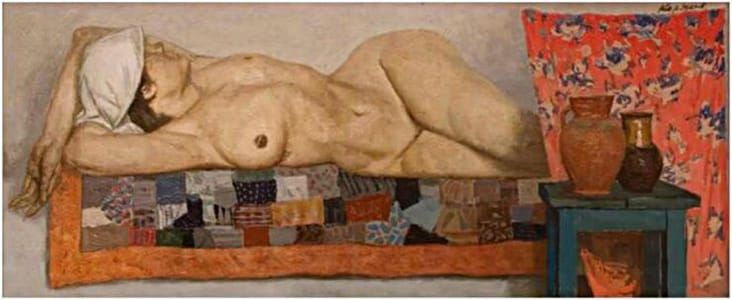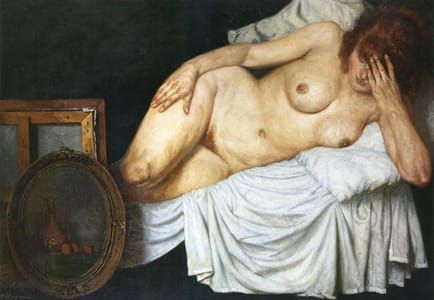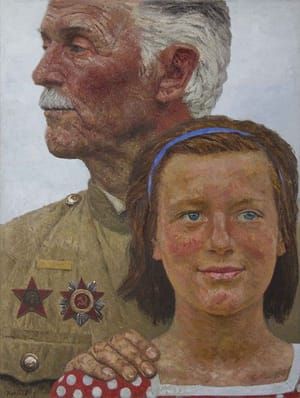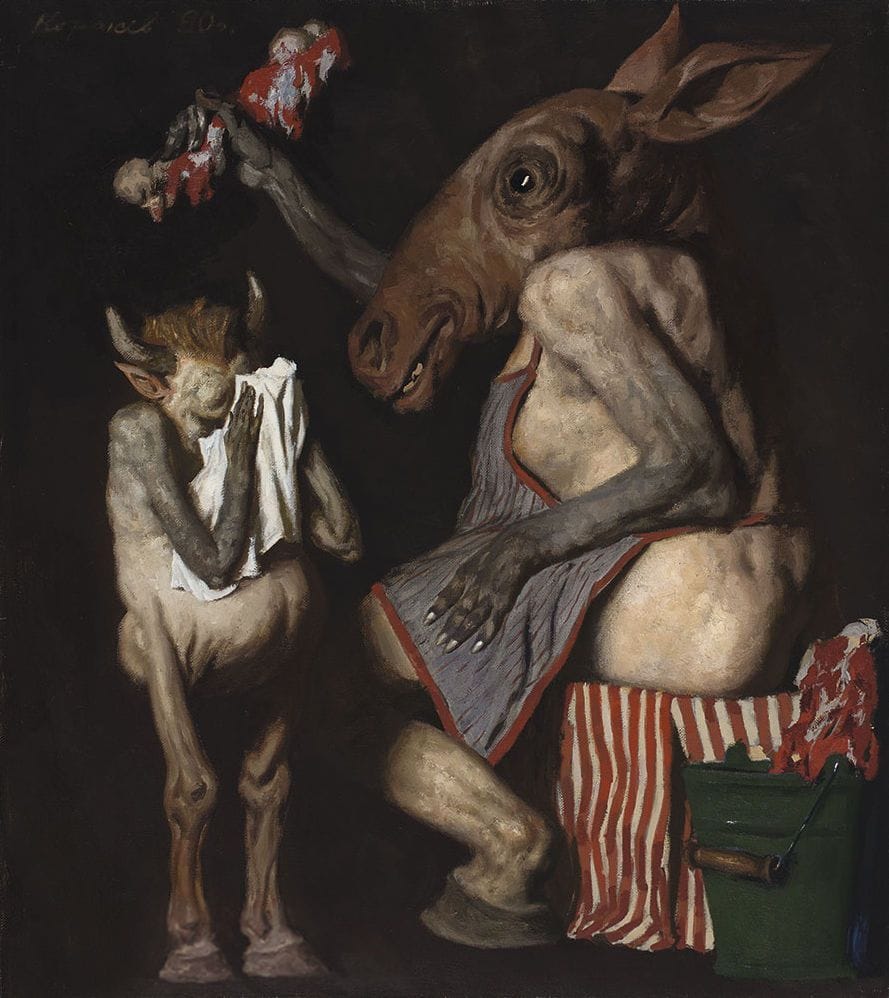

The Butcher (version 2), 1990
Geliy Korzhev
Some of Korzhev’s more recent work—the “Tyurlikis” series—is reminiscent of Hieronymus Bosch, the 15th century Dutch Christian painter whose demons and strange half-human creatures with their tin hats make Salvador Dali look a bit thin. Some Tyurliki paintings are, according to Korzhev’s commentary, allegories expressing his contempt for post-Soviet corruption. Others are more enigmatic. “Fight” depicts a fight or sexual intercourse, it’s hard to tell which, between a human viewed from the back and a bat-gargoyle figure that has sunk its teeth into the man’s shoulder. Others are hilarious, in their way.
(http://monsterbrains.blogspot.nl/2017/01/geli-korzhev-1925-2012.html)
The contemporary Russian reality which Korzhev observed in the final decades of his life did not inspire the master to create works of heroism, or to laud the triumph of the human spirit. In Korzhev's eyes, people had become smaller, pettier. Preoccupied with trivial everyday concerns, they sought solely to satisfy their bourgeois pride and basic human needs. It is perhaps no coincidence that during this period Korzhev came to dream up for his grandson a fantastical beast that subsequently gave rise to the large Tyurlikis series (that name being, as Korzhev himself put it, somewhat "abstract and difficult to explain"). The heroes of this cycle are mutants of different shapes and sizes: half-animals, half-birds, possessing all the failings and weaknesses of human beings. The poignancy and unexpected resonance of the series were such that for a time Korzhev's work came to be seen as resembling that of the contemporary artist camp, a group with which the master would certainly not have associated himself. Certain works from this series, along with Korzhev's "Don Quixote" paintings were shown at Moscow's Regina Gallery in 1993. This exhibition, in a space usually linked with a very different type of art, was, however, as far as this trend went: naturally, Korzhev was simply too major a figure to be absorbed by such groupings.
(http://www.tretyakovgallerymagazine.com/articles/3-2016-52/gely-korzhev-i-have-right)
Uploaded on Aug 9, 2017 by Suzan Hamer
Geliy Korzhev
artistArthur
Wait what?
